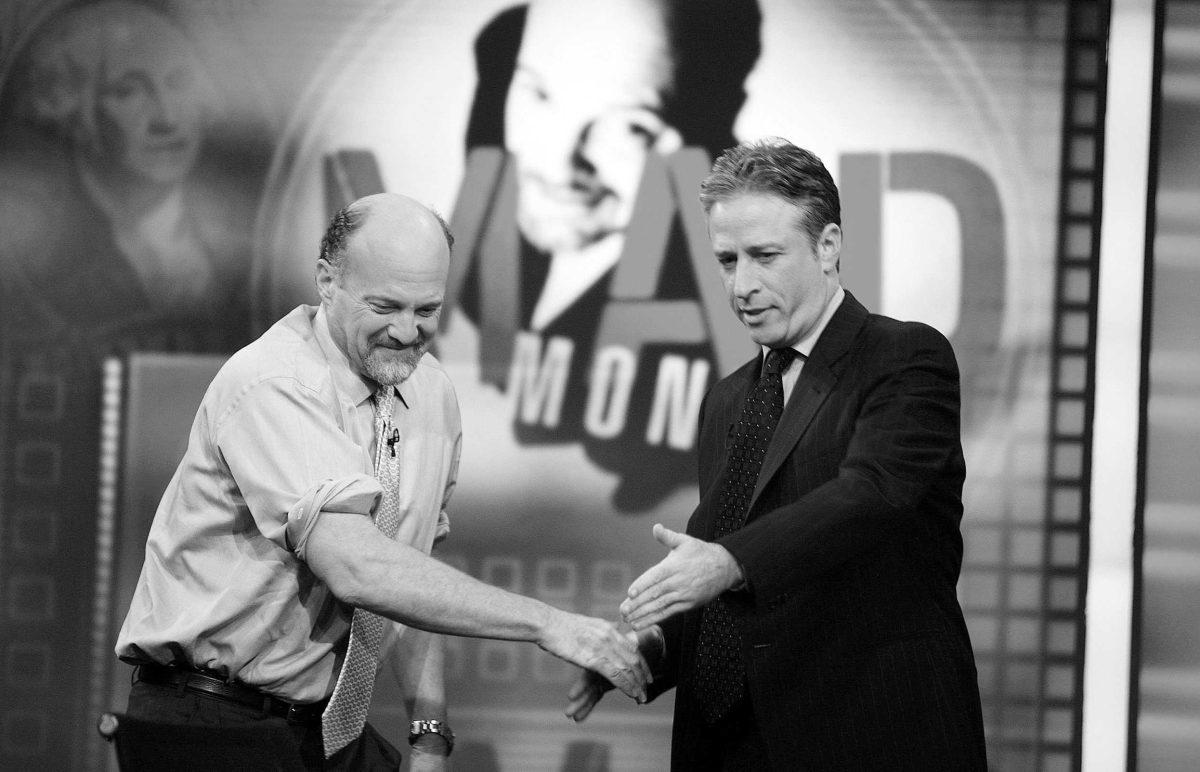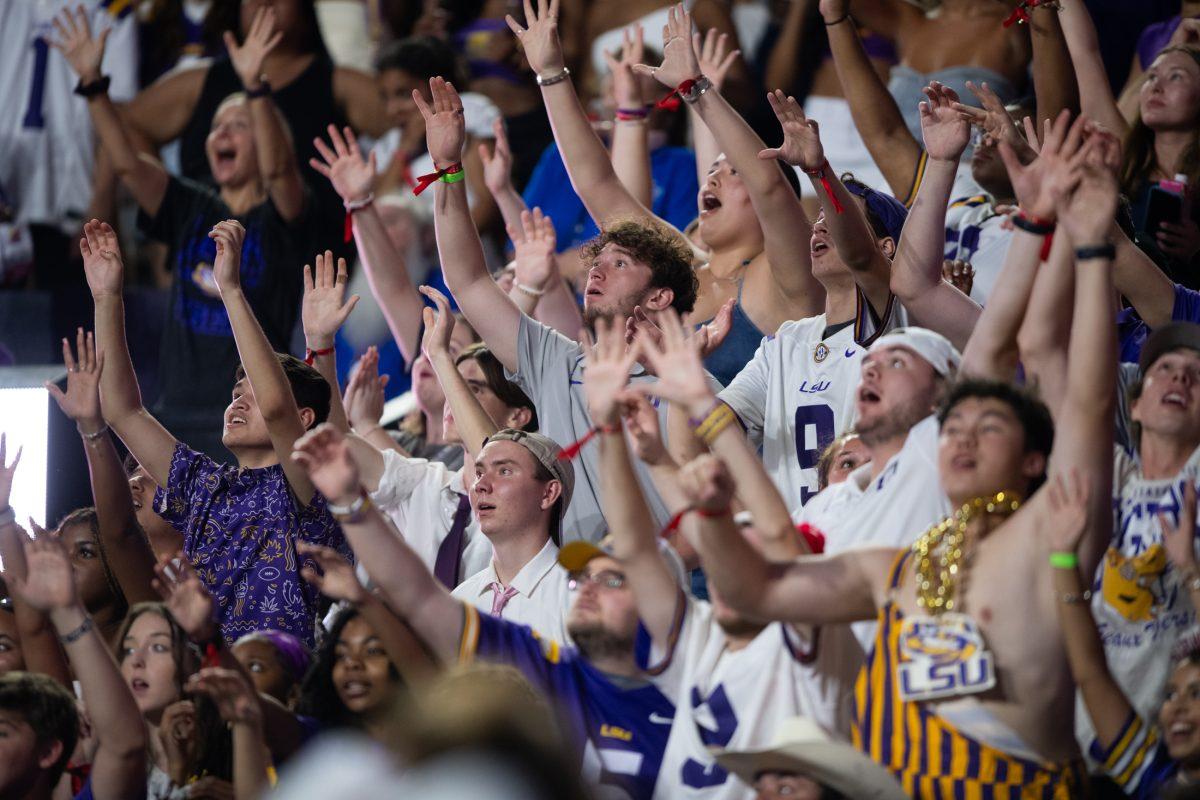Comedy Central’s Jon Stewart may not be a journalist in the typical sense, but he manages to mix comedy, politics and, now, finance.Stewart, host of “The Daily Show,” invited CNBNC financial analyst Jim Cramer on his show last Thursday. After a week of back-and-forth between the two on their respective shows, Stewart subjected Cramer to some hard-hitting questions regarding CNBC’s coverage of the financial crisis.”You knew what the banks were doing and yet were touting it for months and months,” Stewart said. “These guys were on a Sherman’s march through their companies financed by our 401(k)’s, and all the incentives for their companies were for short term . . . and they . . . walked away rich as hell. And you guys knew it was going on.”After showing a series of clips from a 2006 interview that Cramer never intended to be televised, Stewart had him apologizing more than he was debating.”I try really hard to make as many good calls as I can. I should do a better job,” Cramer said. “I wish I’d done a better job. I’m trying, I’m trying.”University professors say although Stewart’s tactics and delivery may be unconventional, he accomplishes his main goal of bringing attention to national problems.Michael Xenos, political science and mass communication professor, said Stewart’s interviews are appealing to viewers because he gets to ask questions typical journalists wouldn’t be able to.”Jon Stewart can interview Jim Cramer, and Cramer can give him his normal talking points,” Xenos said. “But Jon Stewart can push him further and make fun of him.”Xenos said because Stewart has more freedom in the way he approaches interviews, he provides viewers with something they couldn’t find on other news shows.”There are moments with some palpable discomfort in that interview you wouldn’t get anywhere else,” Xenos said. “I think people enjoy it because it’s not as predictable.”Xenos said satirical political programs like “The Daily Show” and “The Colbert Report” bring in viewers for different reasons. Some viewers are just fans of comedy and are only interested in their political and financial interviews because they are on a comedy show. But some are actually interested in politics because of “soft” news shows like this, he said.Bob Mann, mass communication professor, said Stewart is one of the few correspondents who bring honest media criticism to television.”The one thing that “The Daily Show” does better than anybody else is media criticism,” Mann said. “It’s something that’s really missing in journalism today.”Despite critics who claim Stewart is merely a comedian poking fun at real journalists, he conducts thorough and provoking interviews, Mann said.”Why is it that a comedian is doing better interviews than most correspondents on television?” Mann said. “I’m not sure if it says more about Stewart or American politics, but it says something.”Some students said they think shows like “The Colbert Report” and “The Daily Show” are funny but provide real political commentary.Brittany Hidalgo, undeclared freshman, said she doesn’t watch either show regularly but has seen them before.”They’re telling you what’s going on, but it’s funny,” she said. “So it makes it really interesting.”Alexandra Collier, mass communication sophomore, said she gets most of her news content from satirists like Stewart and Colbert.”I think they’re funny, but I get a lot of my news knowledge from those shows,” she said. “I think they’re funny first, but they say a lot of relevant things.”—-Contact Ben Bourgeois at [email protected]
Professors: Stewart, Colbert’s tactics unconventional, effective
March 18, 2009
Jim Cramer (left), host of CNBC’s “Mad Money,” is welcomed by Jon Stewart (right) on March 12 during an appearance on Comedy Central’s “The Daily Show.”







